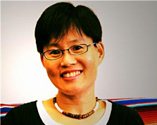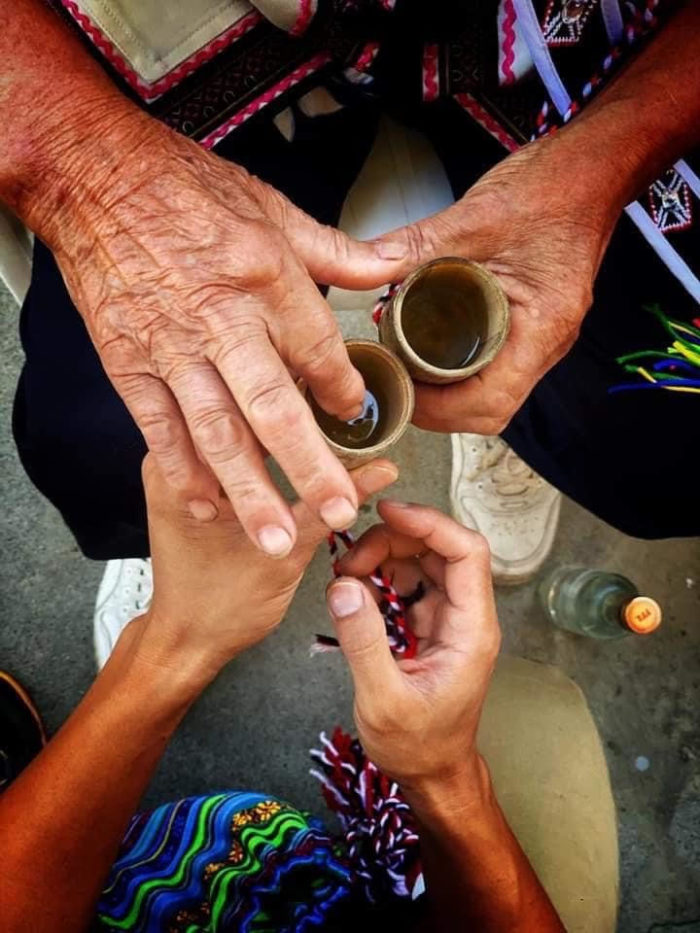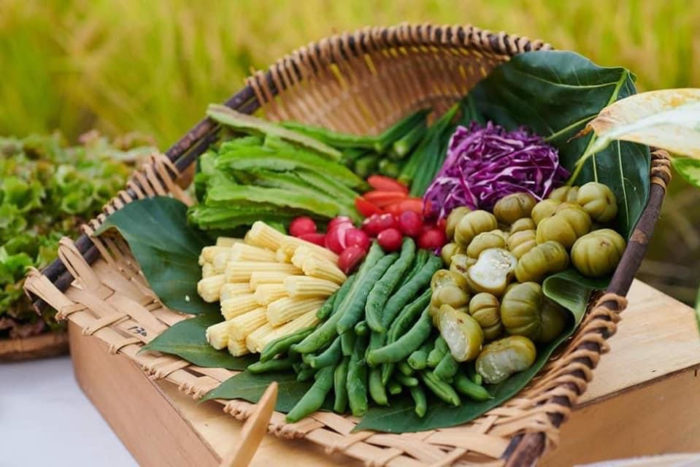From Table, to Kitchen, to Land: Embodied Food Fieldwork

In this short post, Dr. Joyce Hsiu-yen Yeh reflects on her academic research fieldwork on indigenous food and intends to plant the seeds of a research and teaching ‘revolution’ that can change our relationship with food and with indigenous peoples.
I gained my PhD in January of 2004 and started teaching at National Dong Hwa University (NDHU) in August of the same year. NDHU is located in Hualien on the east coast of Taiwan where most of the indigenous population of Taiwan live. At that time my department was called Indigenous Cultures, and our College of Indigenous Studies was the first and only university to have an indigenous college in Taiwan. Even though there is a second indigenous college now, our college still plays a leading role in indigenous teaching and research in Taiwan, and we have had our PhD program since 2005. Our department was merged with the Ethnic Relations graduate program in 2010 when it changed its name to Ethnic Relations and Cultures.
My PhD thesis on Taiwanese youth abroad seemed to have nothing to do with indigenous studies. Yet by combining tourist ethnographic studies within a socio-cultural framework, it focused on how the knowledge of English-as-Otherness was constructed, mobilized and translated into a discourse of intercultural encounters and how it was interpreted, performed and represented in the context of tourism.

Wine as inter-generational learning and edible heritage for Taiwanese indigenous peoples (image creator: Joyce Hsiu-yen Yeh)
Hualien has limited industrial development and is romantically characterized as
‘the last pure land in Taiwan.’ Of the 16 government-recognized indigenous tribes in Taiwan, six are located in Hualien. With indigenous culture and ecological beauty, Hualien has become a famous tourist spot. So, since I moved to Hualien, I have had many visitors including local and international guests. Tasting indigenous food has been a ‘must’ Hualien experience that I hope to pass on to them by taking them to indigenous restaurants. All my guests took pictures of the food before they ate and of course we discussed the ‘exotic’ dishes on the table and enjoyed the joyful chef’s jokes about the differences between Han Taiwanese and their own ethnic cultures. That was how I started to develop my research interest in indigenous food. Being a host and living in Hualien I provided some ‘local knowledge’ to friends. When I didn’t know an answer, I asked the chef about it. This gradually turned into a longer conversation, much like conducting an in-depth interview.
Being a regular customer, I had already developed a certain trust with the indigenous owners and chefs, so it made my subsequent fieldwork on indigenous food easier. I then systematically checked all the indigenous restaurants in Hualien that were run or co-run by the indigenous people. I focused on 12 restaurants and went back to each restaurant to conduct my interviews and did participant observation of other consumers enjoying indigenous food, attending to what dishes they ordered. Some of these consumers became my research interviewees. Sometimes when the restaurants were too busy I became a ‘helper’ in the kitchen so I could chat/interview with the chefs at the same time. In working in the kitchen with my research participants I noticed the other food aspects that I had not paid attention to earlier, such as where the ‘natural’ food came from and how they dealt with the ingredients or ‘raw’ materials. I also learned some of indigenous dishes that I now can cook for others. With my curiosity about how snails were collected and how the wild vegetables were picked, I obtained my invitations to go to the ‘field’ with them. This is what I call ‘real fieldwork.’ Sometimes it was at night, or after the rain and most of time it was early morning when the sun just came out. Those rich data and experiences that I accumulated enabled me to obtain an annual government research grant (NSC) in 2007-2008 entitled: Performing and Consuming Indigenousness: A Socio-Cultural Analysis of Indigenous Restaurants in Hualien. In 2009 a resulting research paper was published in a Taiwanese journal and that article was my major representative publication that enabled me to be promoted to associate professor.

Indigenous food performance as a 'cultural weapon' (image creator: Joyce Hsiu-yen Yeh)
I am highly appreciative and heavily engaged with indigenous people and food. Subsequently, I have also become an activist in all kinds of indigenous movements in Taiwan. My teaching is all about hands-on experiences. Students and I cultivated a millet farm in 2012, and we tried to bring indigenous traditional food and cultural knowledge to this younger generation. My fieldwork has turned into real fieldwork on campus. I also founded FATS (Food, Agriculture, Tourism and Sustainability) with students and indigenous communities to reinforce a university-community partnership and engagement with community-based environmentally friendly farming and responsible tourism.
I built my own farmhouse, Breathing Life, in 2014 and continue to produce food as a connection with culture, nature and community. Breathing Life is located seven km outside of NDHU. Breathing Life has become a living laboratory for students and village people, demonstrating environmentally responsible indigenously-motivated food and farming practices and food culture exchange. Bringing these features together was meant to ensure that rural villages and indigenous communities are seen and valued. Inspiring by our NDHU Millet Farm and FATS, other universities have also started to grow millet and quinoa or to bring the indigenous elders to campus to share their knowledge and cultural wisdom. Since then, higher indigenous education in Taiwan has made some positive changes, and the indigenous knowledge system is respected and conveyed to students.
I believe that indigenous food is a ‘cultural weapon’ for indigenous peoples to regain their cultural and land rights. I obtained my full professorship in 2020 with a major representation Chinese paper -Food Power: Indigenous Food and Foodways as Participatory Action Research of Food and Farming Education. In the Covid pandemic era I continue to conduct my fieldwork on the table, kitchen and land and with my facial mask and vaccinations!
Joyce Hsiu-yen Ye is Professor at the Department of Ethnic Relations and Cultures, College of Indigenous Studies, National Dong Hwa University, in Taiwan. Her latest coauthored work on indigenous heritage (Taiwanese Indigenous Cultural Heritage and Revitalisation: Community Practices and Local Development) is published in the journal Sustainability.
